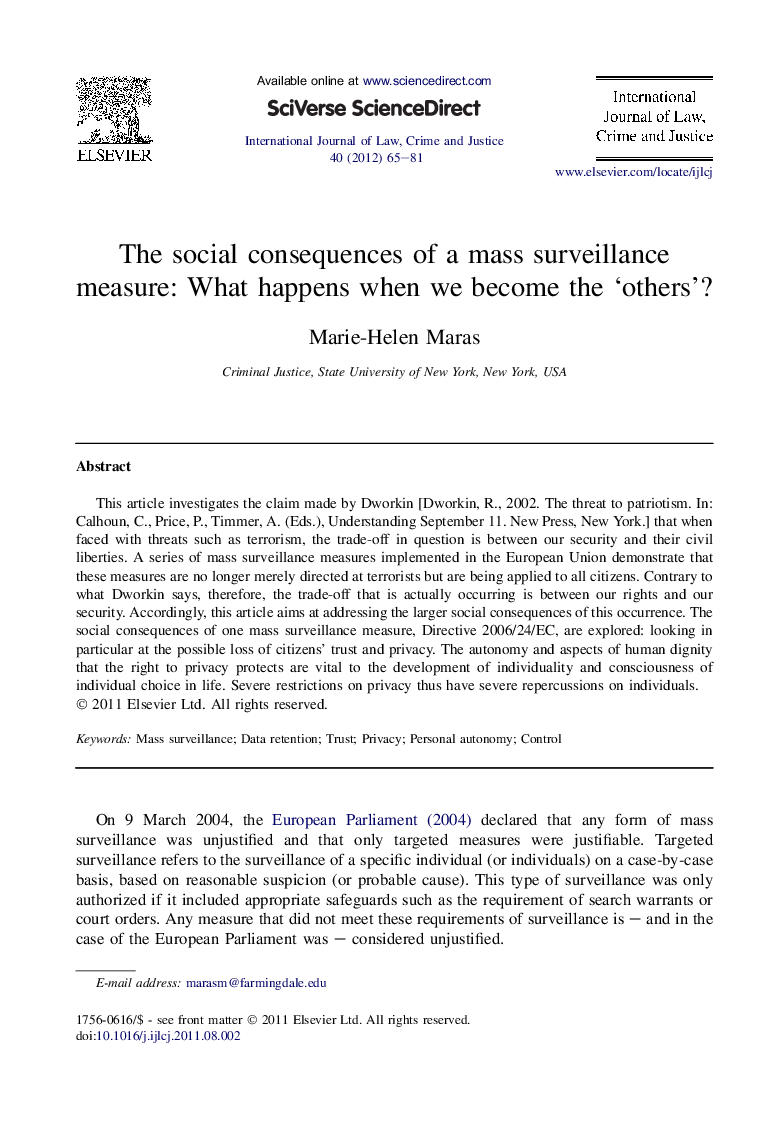| Article ID | Journal | Published Year | Pages | File Type |
|---|---|---|---|---|
| 1098010 | International Journal of Law, Crime and Justice | 2012 | 17 Pages |
This article investigates the claim made by Dworkin [Dworkin, R., 2002. The threat to patriotism. In: Calhoun, C., Price, P., Timmer, A. (Eds.), Understanding September 11. New Press, New York.] that when faced with threats such as terrorism, the trade-off in question is between our security and their civil liberties. A series of mass surveillance measures implemented in the European Union demonstrate that these measures are no longer merely directed at terrorists but are being applied to all citizens. Contrary to what Dworkin says, therefore, the trade-off that is actually occurring is between our rights and our security. Accordingly, this article aims at addressing the larger social consequences of this occurrence. The social consequences of one mass surveillance measure, Directive 2006/24/EC, are explored: looking in particular at the possible loss of citizens’ trust and privacy. The autonomy and aspects of human dignity that the right to privacy protects are vital to the development of individuality and consciousness of individual choice in life. Severe restrictions on privacy thus have severe repercussions on individuals.
► I illustrate a shift in Europe from targeted to mass surveillance. ► I examine one EU mass surveillance measure, Directive 2006/24/EC. ► Its implementation will result in possible loss of citizen's trust and privacy. ► Privacy is at risk both from the database created by the Directive and the potential use of the data. ► The social costs of this measure will be prohibitive.
